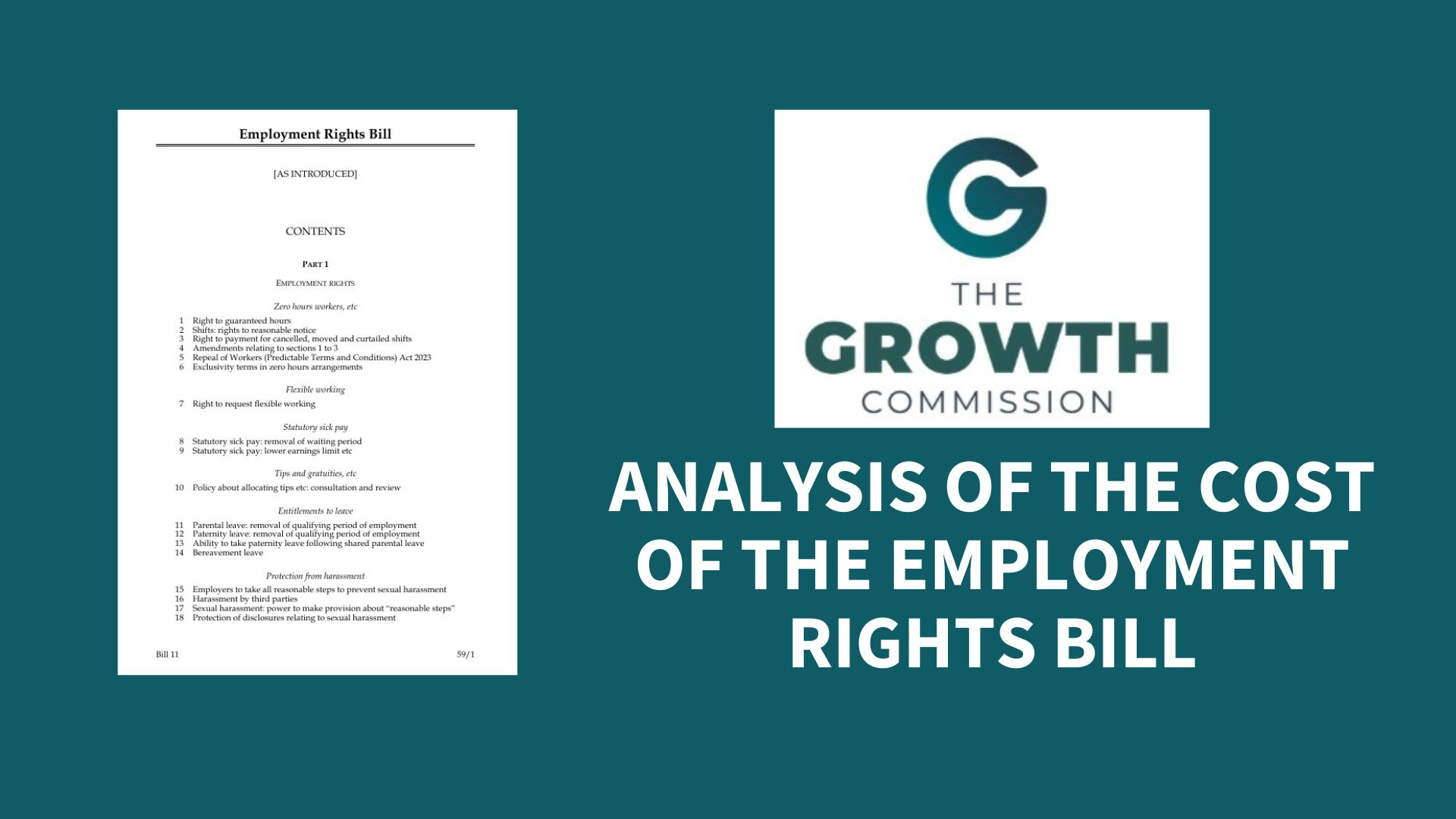
Employment Rights Bill could hit growth to the tune of over £1,000 per person
The Government’s Employment Rights Bill could cause an annual hit to growth of more than £1,000 for every man, woman and child in the UK, according to new calculations from The Growth Commission ahead of Rachel Reeves’ Budget next month.
The Growth Commission – an independent body comprising more than a dozen international economists – has analysed the likely impact of the Employment Rights Bill on the UK labour market and concludes that, within ten years, GDP per capita will be between 1.4% and 2.8% lower as a result of the legislation if it is implemented. This would equate to a loss of GDP of between £38 billion and £76 billion and a loss of GDP per person of between £554 and £1,108.
The Bill introduces a range of new measures which will make the UK labour market more inflexible, including:
- a new statutory probation period
- new rights for zero-hours workers
- changes to Statutory Sick Pay
- day one rights to paternity and parental leave
- the prevention of the use of fire and rehire
- new rights for workers to increase access to union recognition and representation
The extent of the impact will depend on the degree to which proposed revisions, particularly to probation periods, are incorporated into the Bill; but even the lowest potential impact suggested by the Commission’s modelling is a multiple of the £5 billion cost estimated by the Government.
The Bill will likely move the UK into line with other European countries which typically have much less flexible labour markets and much higher rates of unemployment. Spain, the country whose labour laws will be most similar to those in the UK if the Bill is implemented, currently has an unemployment rate of 10.45%, more than double the UK’s 4.8%. Its higher unemployment rate is concentrated on young people and other new or marginal entrants to the labour force.
Today’s new calculation uses the Growth Commission’s Anti-Competitive Market Distortions Model to quantify the likely impact of the legislation. The model scores each country for labour market distortions and measures an impact on GDP based on that score as follows:

Shanker Singham, Chairman of the Growth Commission, said:
“The UK is trying to escape sluggish growth and the Prime Minister has rightly identified growth as his Government’s ‘number one priority’ – but the evidence is clear from our calculations that the Employment Rights Bill will further harm the UK’s economic prospects.
“Now would be a particularly bad time to impose additional burdens on a labour market which is still struggling with the recent sharp rise in the minimum wage and the rise in employers’ National Insurance Contributions.
“If the Government is serious about prioritising growth, it should drop the Employment Rights Bill from its legislative agenda as a matter of urgency.”


